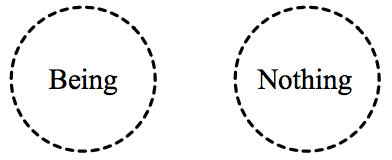While there is no established definition of consciousness by which to prove that consciousness is fundamental to reality, there is general consensus among most professionals that any definition of consciousness must account for the hard problem of consciousness. The hard problem of consciousness suggests that consciousness cannot be fully explained in terms of physical systems, because this does not account for how and why we have subjective experience. Subjective experience is a qualitative phenomenon, and so cannot be reduced to a quantitative measure. A quantitative measure has specified properties as per its structure and function. Whereas, the subjective experience of properties is the meaningful qualities given to properties by the experiencing agent. It's not something in a quantitative sense, but the meaning given to something in a qualitative sense.
As such, a definition of consciousness which accounts for what’s posed by the hard problem of consciousness could be: That which gives qualitative meaning to properties:
Axiom 1: Consciousness/experience = That which gives qualitative meaning to properties.
To demonstrate that consciousness is fundamental to reality, the definition of consciousness must equate to the definition of reality, or be implied by the definition of reality. In other words, consciousness = reality if and only if it is true by definition. Only then would consciousness be "that than which nothing greater can be conceived".
Axiom 2: Reality has a definition: The definition of reality is “all that is not nothing”.
This definition of reality is a tautology. Reality cannot solely be defined as “all that is real” because such does not define what is real, or thereby what is reality. Thus, reality is all that is real because all that is real is all that is not nothing.
How this definition of reality directly implies the proposed definition of consciousness will be explained throughout the remainder of this proof.
Axiom 3: Reality has properties
These properties could either be mind dependent (idealism, conceptualism) or mind independent (realism). The prospect that reality has properties — irrespective of whether they are general or abstract qualities — is almost a universally held claim.
Axiom 4: The definition of reality informs the essential properties of reality.
If the essential properties of reality were contrary to that which is posed by the definition of reality, they could not be used to define reality, and the definition of reality would have no bearing on its properties. The definition of reality informs the essential properties of reality because they are posed by the definition of reality.
The only property posed by the definition of reality -- “all that is not nothing” -- is “realness”. However, the definition or reality also references “nothingness”. While nothingness is actually the absence of property, it is still required to define reality. The non-property “nothingness” is essential for defining the property “realness”, and is thereby equally essential as the property “realness”. Thus, “nothingness” can be regarded as an essential non-property of reality. Thus, the definition of reality imposes the essential property “realness”, and the essential non-property “nothingness”:
Axiom 5: The definition of reality informs the essential non-properties of reality.
With these 5 axioms in mind, consider the following inquiry:

Does the above graphical representation of realities essential properties/non-properties imply the definition of reality? Reality is all that is not nothing.
Answer: No, it does not.
The graphic does distinguish between “reality” and “nothing”, but it also displays both of them together. All It implies is the property “realness” and the non-property “nothingness”. Of course, this contradicts the definition — there cannot be both realness and nothingness.
However, inversely, the definition does imply the graphical representation, as the two properties/non-properties of the graphical representation are posed by the definition.
By depriving the meaning from the definition of reality, while maintaining the properties/non-properties posed by the definition (“realness” and “nothingness”), what’s implied is that reality has properties of “realness” and non-properties of “nothingness”. Evidently, this would contradict the meaning of reality — all that is not nothing. Realness and nothingness are essential properties/non-properties for defining reality as “all that is not nothing”, but only in terms of that definition upon which they are posed. In other words, reality interprets “realness” and “nothingness” in a way that only means “realness”. Thus, the essential properties/non-properties of reality are subject to the qualitative meaning reality gives them.
Thus, reality cannot just be its properties/non-properties. Reality must be that which gives qualitative meaning to its properties/non-properties.
In summary:
Axiom 1) Consciousness has a proposed definition -- “That which gives qualitative meaning to its properties”
Axiom 2) Reality has a definition — “That which is not nothing”.
Axiom 3) Reality has essential properties.
Axiom 4) The definition of reality informs the essential properties of reality.
Axiom 5) The definition of reality informs the essential non-properties of reality.
As such, reality defines the property “realness” and the non-property “nothingness” in a way that just means “realness”.
Therefore, reality gives qualitative meaning to the essential properties of reality. This is equivalent to the proposed definition of consciousness (1).
With only some of these axioms amounting to an explanation of reality, reality runs a contradiction by implicating to be real and unreal.
With all 5 axioms, reality is just real.
Therefore, consciousness is fundamental to reality.
This deduction of a “universal consciousness” fulfills Anselm's definition of God as "that than which nothing greater can be conceived", as it is a direct implication of the definition of reality-at-large, and nothing greater than reality can possibly be conceived.
Side note: One may object to this deduction with the claim that, for the essential non-property of “nothingness” to mirror the definition of reality, an object distinction must be conceptualized, thereby conceptualizing “something” instead. While dissociative alters are unable to conceptualize nothingness without conceptualizing something, there’s reason to claim that mind-at-large can, because it isn’t obscured by the contents of perception that dissociative alters are. Mind-at-large, or reality-at-large, can conceptualize nothingness because all that’s required is the absence of concept (non-concept).
https://en.wikipedia.org/wiki/God